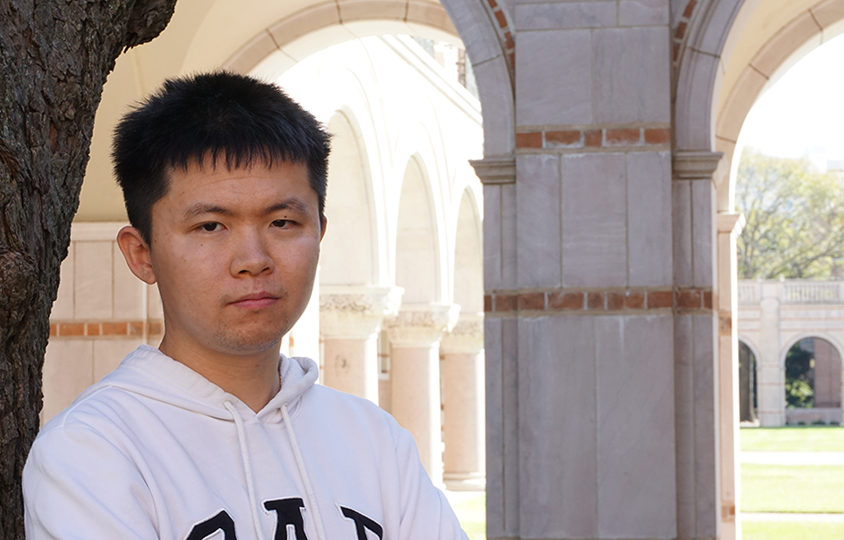Chosen from an ‘exceptionally strong nomination pool,’ Rice University Computer Science Ph.D. alumnus Keren Zhou will be recognized at the 2023 International Conference for High Performance Computing, Networking, Storage, and Analysis (SC23) in Denver for having produced the best doctoral dissertation in the field of high performance computing (HPC) in the previous year.
The ACM’s Special Interest Group on HPC (SIGHPC) evaluates dissertation nominations based on the novelty of the work, quality of scholarship, significance of the research contributions, and potential impact on theory and practice. Zhou’s work was selected in part because his innovative research was translated into real tools, demonstrating his versatility in both theory and practical application.
Zhou said, “I feel honored to be chosen as the recipient of the SIGHPC Doctoral Dissertation Award, and I am thrilled to learn that my work stood out in such a competitive field. The acknowledgment of my research by the ACM SIGHPC is deeply meaningful and serves as a great encouragement for my future endeavors.”
His dissertation topic, “Performance Measurement, Analysis, and Optimization of GPU-accelerated Applications,” reflects his interest in the use of graphics processing units (GPUs) to speed up applications used in HPC environments. But before he could accelerate applications on GPUs, he had to first understand what slowed them down.
“As an analogy, let’s say you have a vehicle and you want it to go as fast as it can in every situation – in heavy rain, on a bumpy road, etc. You have to first determine what is the limitation that prevents the vehicle from achieving that higher performance. Similarly, we were identifying and ameliorating the limitations that hamper the latest GPUs technologies in use on high-end HPC platforms.”
His Rice advisor, John Mellor-Crummey is not surprised Zhou’s dissertation was selected for the 2023 SIGHPC Doctoral Dissertation Award. “Keren’s dissertation research was both broad and deep,” said Mellor-Crummey. “One of the most notable tools that Keren developed as part of his dissertation research is a GPU Performance Advisor that measures application performance, identifies performance bottlenecks using pattern matching, suggests optimizations to ameliorate bottlenecks, and uses models to assess the performance benefits of the suggested optimizations.”
For the past year, Zhou has been working as a member of the technical staff at OpenAI, the company behind ChatGPT and DALL-E. This fall, he joins the faculty at George Mason University as an assistant professor of computer science. Both roles allow him to continue exploring practical applications for GPUs in deep learning.
“Taking a Coursera class on heterogeneous parallel programming with Wen-mei Hwu at UIUC first introduced me to the concept of programming a GPU,” said Zhou. "We learned about the CUDA programming language created by NVIDIA for use on GPUs --which were originally designed to support videos and games, not for general use programming. That concept intrigued me, but I remained focused on CPU and parallel programming until I began my master's program at the Institute of Computer Technology in the Chinese Academy of Sciences.
“Working with Professor Guangming Tan on a project related to GPU programming led me to know Scott Gray, who is well-known for his work that reverse-engineered NVIDIA’s binary format. I’ve been fascinated with GPU programming since then –and this past year, I had a chance to work with Scott at OpenAI. When I was choosing a Ph.D. program, I wanted an advisor experienced in both CPU and GPU programming. Rice’s Professor John Mellor-Crummey is the only person in the U.S. with extensive knowledge of both domains.”
His successful collaboration with Mellor-Crummey led to seven GPU research papers, plus two additional papers on deep learning model compression with another Rice CS faculty member, Anshumali Shrivastava. Despite his research success, Zhou had not decided whether to pursue a career in academia or industry and only applied for a limited number of faculty roles.
“Because I limited my applications, it became important to do really well at each job talk,” said Zhou. “My ability to produce research papers was already established in the early stages of the application. What I had to convey in the job talk was my ability to connect with an audience and attract funding with my ability to tell the story well.”
“At OpenAI, the importance of narrowing my focus was reinforced. To make the best use of your company’s resources, you can focus on only a few things. It is impossible to do many things really well. Concentrating all your energy on a single focus is not a guarantee of success, but it is the start of success.”

